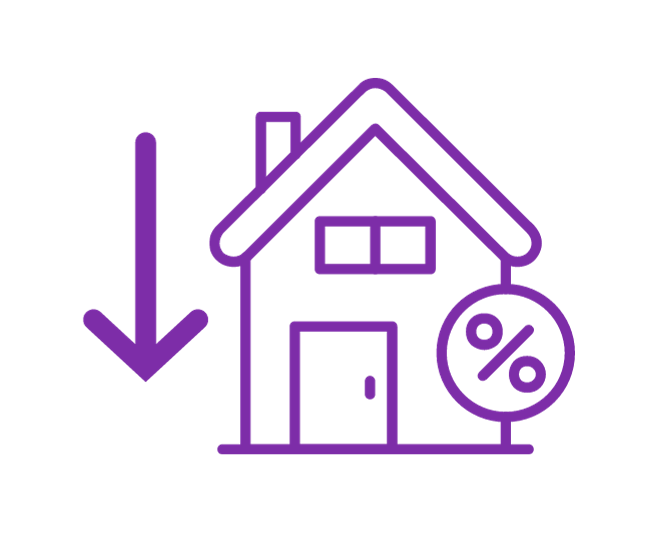
VOTE LIKE YOU MEAN IT
2023 Voter Guide
A helpful resource to simplify the 2023 Colorado ballot measures
To view this guide in Spanish, click the Spanish translation button located in the upper righthand corner of this page. Para ver esta guía en español, haga clic en el botón de traducción al español ubicado en la esquina superior derecha de esta página.
Hey there, Voter
Developmental Pathways wants all voters to know that their vote matters and to be empowered to make their own choices. We created this Colorado Voter Guide to help you make an informed vote! We urge you to make sure you are registered to vote, educated on the issues, and vote.
As a 501(c)(3) organization, we are nonpartisan. We cannot endorse any political candidate and have chosen not to endorse any of the 2023 ballot measures.
In 2023, there are no county-wide ballot measures in the counties currently served by Developmental Pathways (Arapahoe, Douglas, and Elbert), but there are two statewide ballot measures on the ballot. This guide does not include local ballot issues, which may vary depending on your city, county, and special district.
In the guide, we break down each topic to vote on and then explain what a yes or no vote would mean. You can visit the My Ballot page to see what’s on your ballot before it arrives. You can also go to our Resources section below for your county’s elections website, the Colorado Ballot Information Booklet (aka the Blue Book), and other helpful voter resources.
Be sure to follow us on social media to stay updated on new materials, information, and important voting-related dates. Please share the Voter Guide on Facebook, Instagram, Twitter, or LinkedIn if you feel inclined. We look forward to connecting with you!
Making a Voting Plan
First, visit GoVoteColorado.gov to make sure your registration is up to date. You can also learn more about voting and track your ballot on this site. All registered Colorado voters will receive a ballot in the mail. Ballots are due on Tuesday, November 7, 2023, and must be received by 7 p.m. There are many ways to vote, so we encourage you to make a voting plan.
- Drop box or mail: You can return your ballot at a drop box in your county or place a stamp on the envelope and mail it back. You find a drop box near you using the Polling Location and Drop Box Lookup tool.
- In-person: You vote in person by finding a polling location near you using the Polling Location and Drop Box Lookup tool. You can also vote at Voter Service and Polling Centers (VSPC).
- Electronically: If you have a disability, you may be eligible to vote with an electronic ballot.
If you have any questions, please feel free to contact Kim Tenure, Associate Director of Disability Policy, at k.tenure@dpcolo.org.
Happy Voting!
Important Election Terms for Colorado Voters in 2023
TABOR
The Taxpayer Bill of Rights (aka TABOR) is a law specific to Colorado. Colorado is the only state in the U.S. that has TABOR. Information about TABOR (relevant to this election):
- Limits the amount of money the government can keep and spend
- Requires voters to decide on certain tax increases
- In odd election years, like 2023, ballots are limited to fiscal or tax issues due to TABOR.
- Find out more about TABOR
Property Taxes
Support public schools, county governments, special districts, municipal governments, and junior colleges. All of the money from property taxes stays within your county. Property taxes do not fund any state services.
Referred Amendment
Started with the Colorado legislature and requires voter approval to become law.
Revenue
The amount of money brought into the Colorado government through taxes and fees.
Projections
A term used for an anticipated outcome. In our guide we refer to projections or estimates on tax revenue and refunds associated with Proposition HH. Projections are basically educated or researched guesses.
Ballot Measures

Proposition II:
Retain Nicotine Tax Revenue in Excess of Blue Book Estimate
What you will see on your ballot
Without raising taxes, may the state retain and spend revenues from taxes on cigarettes, tobacco, and other nicotine products and maintain tax rates on cigarettes, tobacco, and other nicotine products and use these revenues to invest twenty-three million six hundred fifty thousand dollars to enhance the voluntary Colorado preschool program and make it widely available for free instead of reducing these tax rates and refunding revenues to cigarette wholesalers, tobacco product distributors, nicotine products distributors, and other taxpayers, for exceeding an estimate included in the ballot information booklet for proposition EE?
Helpful Background
In 2020, Colorado voters approved Proposition EE, which required the state to use tax money from tobacco, cigarettes, and nicotine products sold in Colorado to pay for health and education programs. Specifically, this measure established the Universal Pre-Kindergarten program (UPK). The measure brought in more money for the state than estimated and now, voters must decide whether to keep the extra revenue for use in the preschool program or give the funds back to the companies that produce tobacco, cigarettes, and nicotine products, as well as decrease future tax rates on these products.
A YES vote means
- You are voting for this measure to pass.
- The state would keep the extra tax money and use it to pay for the UPK program without adding additional tax.
- The current tax on nicotine products would remain the same.
A NO vote means
- You are voting for this measure to fail.
- The extra tax money would be refunded to wholesalers and distributors of cigarettes, tobacco, and nicotine products.
- Future taxes on nicotine products would be reduced.

Proposition HH:
Reduce Property Taxes and Retain State Revenue
What you will see on your ballot:
Shall the state reduce property taxes for homes and businesses, including expanding property tax relief for seniors, and backfill counties, water districts, fire districts, ambulance and hospital districts, and other local governments and fund school districts by using a portion of the state surplus up to the proposition HH cap as defined in this measure?
Helpful Background:
Prop HH is a complicated measure that has a lot of potential impacts. Some of the data presented is based on estimates or projections that may change, and we don’t know all the potential long-term outcomes to the changes proposed.
Property values for houses, condos, apartment buildings, and land have been increasing in Colorado, meaning that currently, buying a home costs more and increased housing costs affect how much property owners pay in taxes and thus, how much money goes to local and state governments to provide services.
The Colorado legislature passed Senate Bill 303 in response to concerns regarding increased property taxes. This issue was referred to voters by the Colorado Legislature and is Proposition HH. Since this measure would make changes the state’s constitutional revenue limit (the amount of money the state can collect) this requires voter approval.
This measure may impact the amount of money homeowners pay in property taxes and the amount of money that you see in TABOR refunds.
You can visit the History of Election Results for Ballot Issues page to learn more about any referred measure.
A YES vote means
- You are voting to have this measure pass.
- Because this is a complicated ballot measure and some of the data is based on estimates or projections that may change, we don’t know all the potential long-term outcomes if this measure passes.
To learn more opinions about a YES vote, visit:
A NO vote means
- You are voting for the measure to fail.
- This means none of the stated actions in measure will pass.
To learn more opinions about a NO vote, visit:
Resources
County Resources
State Resources
- The Colorado Ballot Information Book (The Blue Book):
Provides a fair, unbiased analysis of proposed ballet measures. You may have already received your copy in the mail. You can also find it online in English, Spanish, and an audio version. - Colorado Secretary of State:
The state agency that oversees all voting in Colorado.
